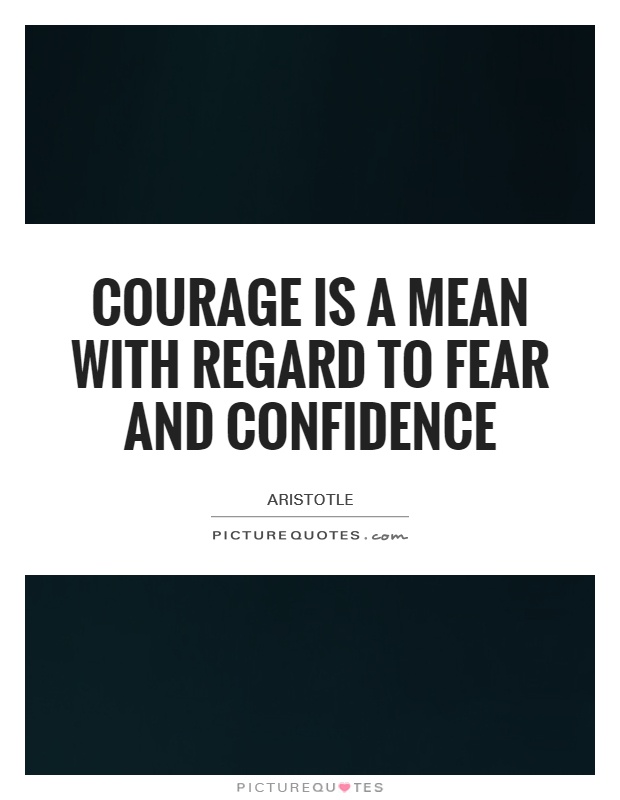Courage is a mean with regard to fear and confidence

Courage is a mean with regard to fear and confidence
In Aristotle's Nicomachean Ethics, courage is defined as a mean with regard to fear and confidence. This means that courage lies between the extremes of cowardice and recklessness. Aristotle believed that courage is a virtue that can be cultivated through practice and habit, and that it is essential for living a good and fulfilling life.Fear is a natural human emotion that can be both helpful and harmful. It can protect us from danger by alerting us to potential threats, but it can also paralyze us and prevent us from taking necessary risks. Courage is the ability to face fear head-on and act in spite of it. It is not the absence of fear, but the willingness to confront it and overcome it.
Confidence, on the other hand, is the belief in oneself and one's abilities. It is the assurance that one can handle whatever challenges come their way. Without confidence, courage is impossible, as one must believe in their own strength and resilience in order to face their fears.
Aristotle believed that courage is a mean because it lies between the extremes of cowardice and recklessness. Cowardice is the deficiency of courage, where one is overcome by fear and unable to act. Recklessness, on the other hand, is the excess of courage, where one acts without considering the consequences or risks involved. Courage, as a mean, is the balance between these two extremes, where one is able to assess the situation, acknowledge their fear, and act with confidence and determination.
Courage is essential for living a virtuous life, according to Aristotle. It allows us to face our fears, take risks, and pursue our goals with determination and resilience. Without courage, we would be unable to overcome the obstacles and challenges that life presents us. By cultivating courage as a virtue, we can live a life of purpose and fulfillment, unafraid to take on the challenges that come our way.












 Friendship Quotes
Friendship Quotes Love Quotes
Love Quotes Life Quotes
Life Quotes Funny Quotes
Funny Quotes Motivational Quotes
Motivational Quotes Inspirational Quotes
Inspirational Quotes